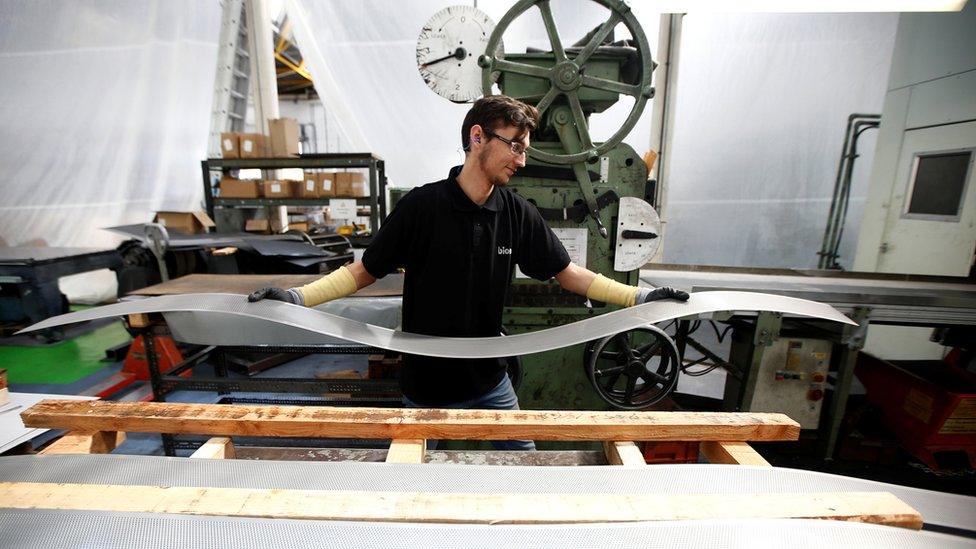UK manufacturing falls in October, ONS figures show
- Published

Manufacturing growth fell sharply in October, surprising economists, who had predicted a rise.
Output from manufacturers dropped by 0.9%, after a 0.6% rise in September, according to the Office for National Statistics (ONS), external.
Total industrial production dropped by 1.3% in October, after falling 0.4% in September. The temporary closure of a major oilfield was the main factor.
It was the biggest fall in overall production since August 2013.
The decline in manufacturing output was "broad-based across the sector", the ONS said. The biggest downward pressure came from the pharmaceutical industry, which saw a 3.6% drop.
As for total industrial production, the largest fall in output came from oil and gas, which shrank by 10.8%.
"The increase can largely be attributed to continued maintenance to the Buzzard oilfield in the North Sea," the ONS said.
'Dent to growth'
Commentators pointed out that the fall in industrial production dealt a blow to the UK's GDP growth prospects in the final three months of the year.
"With much of the latest survey evidence being decent and retail sales surging in October, we had believed that there was a good chance that UK GDP growth in the fourth quarter could match the resilient 0.5% quarter-on-quarter achieved in the third quarter," said Howard Archer, chief UK and European economist at IHS Global Insight.
"October's 1.3% drop in industrial production puts a significant dent in fourth-quarter growth prospects, as it now looks odds-on that the sector will contract in the fourth quarter and possibly markedly - even allowing for the fact that there could be a marked bounce-back in oil and gas extraction as the oilfield comes back into operation.
"While industrial production only accounts for 14.6% of total output, contraction would be a blow."
Figures issued by the National Institute of Economic and Social Research (NIESR) indicated that in the three months to the end of November, GDP grew by 0.4%, unchanged from its previous GDP estimate of 0.4% growth in the three months to the end of October.
"Recent economic growth has been driven almost entirely by the UK's broad service sector, supported by robust consumer spending," said Rebecca Piggott, research fellow at NIESR.
"In stark contrast, the official figures suggest that the production and construction sectors of the economy have declined over recent months. Looking ahead, we do not expect such buoyant consumer spending growth to persist.
"Sterling's pronounced depreciation this year is expected to pass through to the consumer prices throughout the course of 2017 and 2018, eroding the purchasing power of households substantially."
- Published5 December 2016
